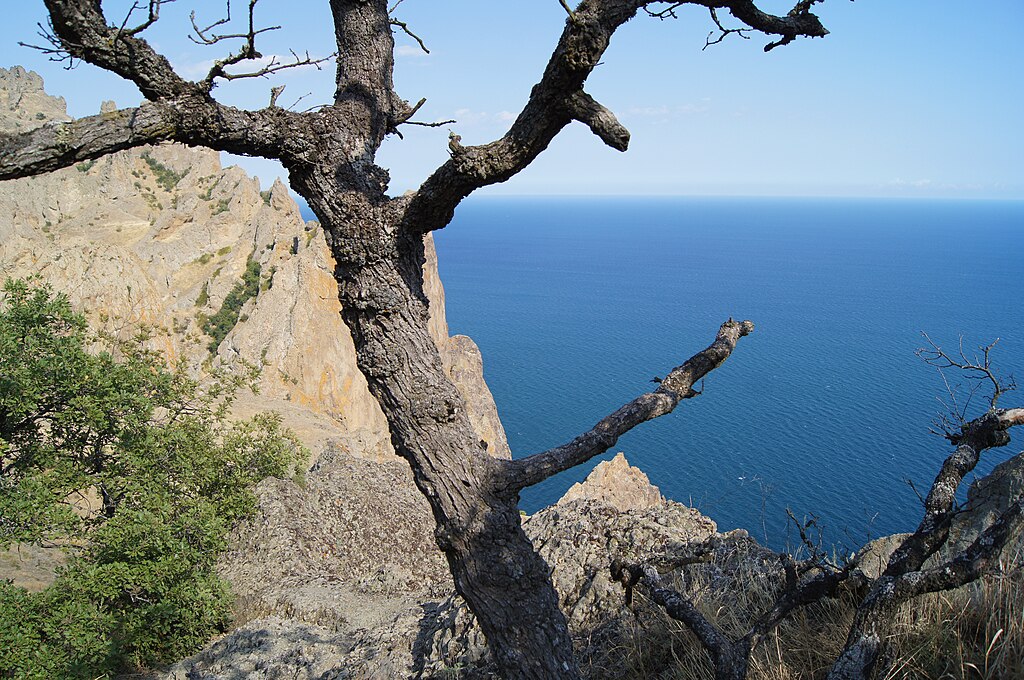The Crimea's uncertain (climatic) future
The effects of climate change are becoming more pronounced year after year on the Crimean Peninsula, intertwining with a worsening water shortage following the halt in the flow of Dnipro River water after the region's separation from Ukraine. This has had serious consequences for local agriculture, which blames the water usage in swimming pools and tourist resorts—an attempt to support a tourism sector in deep crisis due to the ongoing war.
Moscow (AsiaNews) – The Crimean Peninsula is particularly sensitive to climate change, and recent developments have raised significant concerns, following a spring-like winter and snowfalls accompanied by frost during springtime.
Local authorities, under Moscow’s control since the region’s annexation by Russia over a decade ago, acknowledge that the warnings grow more serious each year, exacerbating an already chronic water scarcity caused by the interruption of the Dnipro water supply after separation from Ukraine.
Already in March 2024, unseasonal frosts damaged fruit, vegetable, and berry crops—including grapes—and the phenomenon repeated itself this year, suggesting an apparently irreversible change.
April’s snowfall devastated Crimean gardens and fields, with temperatures dipping below seasonal norms well into May, accompanied by a lack of beneficial rainfall, making even grain harvests increasingly problematic, as local farmers report.
According to data from the Sevastopol Ministry of Agriculture, approximately a third of the cherry harvest has been lost, with apricots being the most affected fruit tree, followed by plums, almonds, and early peach varieties, which had just begun to ripen when the snow hit.
As Tatiana Olejnik, head of the regional branch of the Russian Union of Gardeners, told Krym.Realii, “These crops may partly be replaced with later-ripening varieties, but this year fruit and strawberries will be rare commodities in Crimea.”
The region is relying more heavily on apples, which have been less affected by climate fluctuations, along with olives, which are among the most frost-resistant crops in Europe, according to experts from the “Vernadsky” Federal University.
Authorities are also counting on supplies from other parts of Russia and from the occupied Ukrainian regions of Kherson and Zaporizhzhia.
Climate change is, of course, a global phenomenon that is transforming social life in many countries. In Crimea, however, it is less a matter of global warming and more one of seasonal cooling, making the situation even more unusual and long-term forecasts increasingly difficult, as experts confirm.
Yevhen Khlobystov, dean of the Faculty of Natural Sciences at the Mohyla Academy in Kyiv, also points to another critical factor in Crimea—the large-scale population displacement: “The arbitrary relocation of nearly a million people, partially replaced by Russians, increases pressure on the peninsula’s natural resources, particularly its already limited water supply.”
The Russian military draws on local water sources without restriction and without accountability to any local authority, creating an additional drain on resources. According to Khlobystov, “Crimea could survive even without the Dnipro water, but only with strict rationing of resources.”
Yet, in addition to military needs, enormous quantities of freshwater are being diverted to swimming pools and tourist resorts in an effort to prop up a tourism industry already severely weakened by the war. In the area around the city of Staryi Krym in the eastern part of the peninsula, water is delivered by tanks and lorries. Beyond agriculture, several sectors of industrial production are also being impacted.
Experts now believe that Crimea has become almost entirely dependent on supplies from Russia—not only for food products in general, as maintaining livestock has also become difficult—but also for many essential goods.
The region is increasingly turning into a marginal outpost of the Russian empire, much as it was during its initial conquest and incorporation into the Soviet Union, a period marked by devastating famines whose spectre once again looms over the once-proud Black Sea peninsula.
12/02/2016 15:14







.png)










